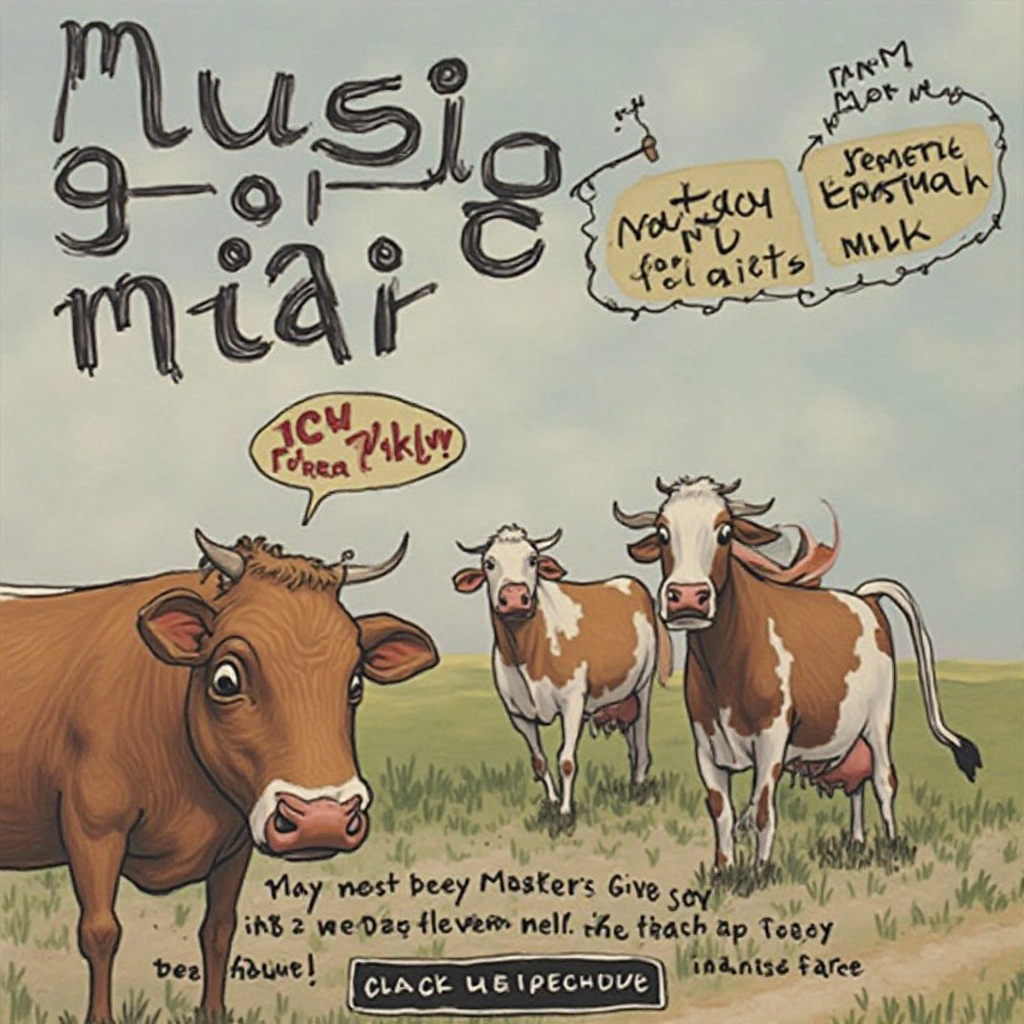🎶 Moo-sic to Their Ears: How Music Makes Cows Give More Milk 🐄
When you think of music, your mind probably goes straight to humans—singing along in the shower, nodding to beats on the bus, or dancing at a party. But here’s a surprising twist: cows also love music. And not just for entertainment. Studies and real-life farm experiments have shown that cows actually produce more milk when they listen to music. Sounds wild, right? Let’s break it down.
The Connection Between Music and Milk
Cows, just like humans, respond to their environment. They are sensitive animals, easily influenced by stress, comfort, and routine. Stress can lower milk production because it disrupts the hormones that help with lactation. On the other hand, when cows are calm and relaxed, they give more milk.
That’s where music steps in. Slow, soothing tunes—think classical music, soft jazz, or even mellow country songs—create a peaceful atmosphere in the barn. The rhythm seems to lower the cows’ stress levels, helping them settle down, chew their cud, and release milk more easily.
What the Research Says
This isn’t just a funny farm myth—it’s backed by science. In one study conducted in the UK, researchers found that cows listening to slow, calming songs produced up to 3% more milk compared to those who weren’t exposed to music. That might not sound like much at first, but when you multiply it across hundreds of cows on a farm, that’s a huge increase in milk supply!
Interestingly, not all music works the same way. Fast, loud, or heavy-beat genres—like rock or techno—didn’t have the same effect. In fact, they sometimes had the opposite impact, making cows restless. So if you’re imagining a herd of cows vibing to heavy metal, sorry to disappoint—they’re more into Beethoven than Metallica.
Farmers Are Taking Notes (Literally)
Many dairy farmers have embraced this quirky discovery. Some set up speakers in barns and play playlists designed specifically for their cows. Others even experiment with different genres to see what their herd prefers. It’s not unusual to hear Mozart, Norah Jones, or soft instrumental tracks playing in the background while cows are being milked.
One farmer once joked that his cows had better taste in music than he did, because they seemed happiest when the barn echoed with classical symphonies. Another reported that playing slow country ballads during milking time created such a calm atmosphere that both the cows and the workers felt more at ease.
Why This Matters Beyond the Farm
On the surface, it may sound like a fun fact to laugh about—but it also highlights a deeper truth: animals have emotions and responses much like ours. Music is universal; it has the power to calm, heal, and connect, whether it’s for humans or cows. This also shows how small changes in an animal’s environment can lead to better welfare and productivity.
For farmers, the benefits are double. Happy cows not only produce more milk but are also healthier, which reduces veterinary costs and improves the overall quality of life on the farm. For us as consumers, it means more sustainable milk production—and maybe even a reminder that the little things, like music, really do make a difference.
The Takeaway 🎧🐮
So, the next time you pour milk into your coffee or cereal, picture this: somewhere out there, a cow might have been swaying gently to a violin melody or relaxing to a soft piano piece while producing that milk.
It’s a funny yet heartwarming thought—proof that music truly is a universal language, reaching across species. Who knew that the secret to a better glass of milk might just be a good playlist?


You must be logged in to post a comment.